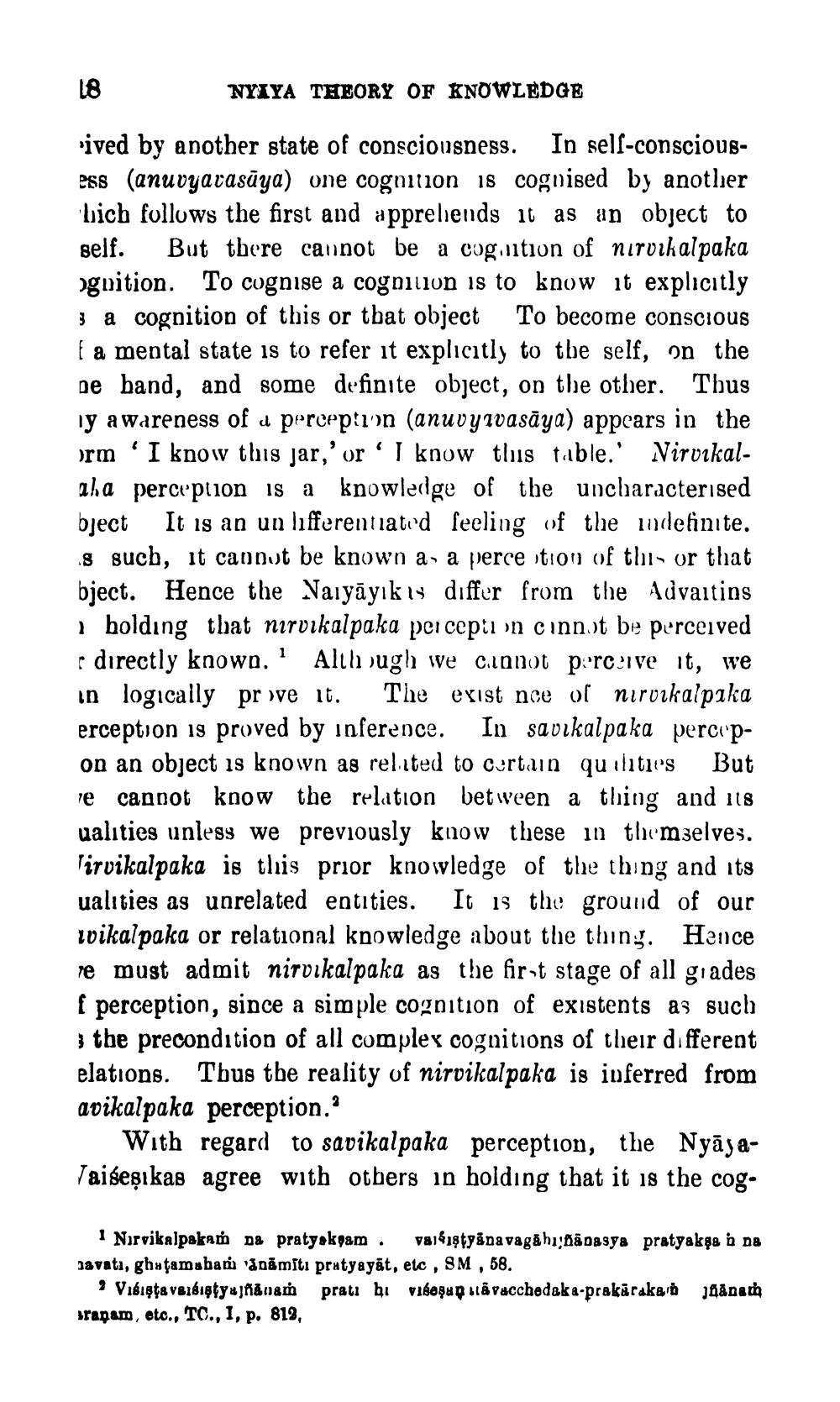________________
18
NYIYA THEORY OF KNOWLEDGE
ived by another state of consciousness. In self-consciousess (anuvyavasaya) one cognition is cognised by another bich follows the first and apprehends it as an object to self. But there cannot be a cognition of nirvikalpaka ognition. To cognise a cognition is to know it explicitly 3 a cognition of this or that object To become conscious I a mental state is to refer it explicitly to the self, on the ne hand, and some definite object, on the other. Thus y awareness of a perception (anuvyavasāya) appears in the ›rm I know this jar,' or ' I know thus table.' Nirvikalala perception is a knowledge of the uncharacterised bject It is an unlifferentiated feeling of the indefinite. s such, it cannot be known as a perception of this or that bject. Hence the Naiyāyik is differ from the Advaitins holding that nirvikalpaka percepti in cinnot be perceived r directly known. 1 Although we cannot perceive it, we in logically prove it. The exist nce of nirvikalpaka erception is proved by inference. In savikalpaka percepon an object is known as related to certain quilities But 7e cannot know the relation between a thing and its ualities unless we previously know these in themselves. irvikalpaka is this prior knowledge of the thing and its ualities as unrelated entities. It is the ground of our vikalpaka or relational knowledge about the thing. Hence re must admit nirvikalpaka as the first stage of all grades f perception, since a simple cognition of existents as such the precondition of all complex cognitions of their different elations. Thus the reality of nirvikalpaka is inferred from avikalpaka perception."
With regard to savikalpaka perception, the NyājaTaiseṣikas agree with others in holding that it is the cog
1 Nirvikalpakam na pratyskeam
navati, ghatamaham 'ānāmīti pratyayat, etc, SM, 58.
2 Visista vaidistyajñānam prati hi videgap tavacchedaka-prakarakah jñānaṁ rapam, etc., TC., I, p. 812,
vaisistyana vagahiñanasya pratyaksa i na




